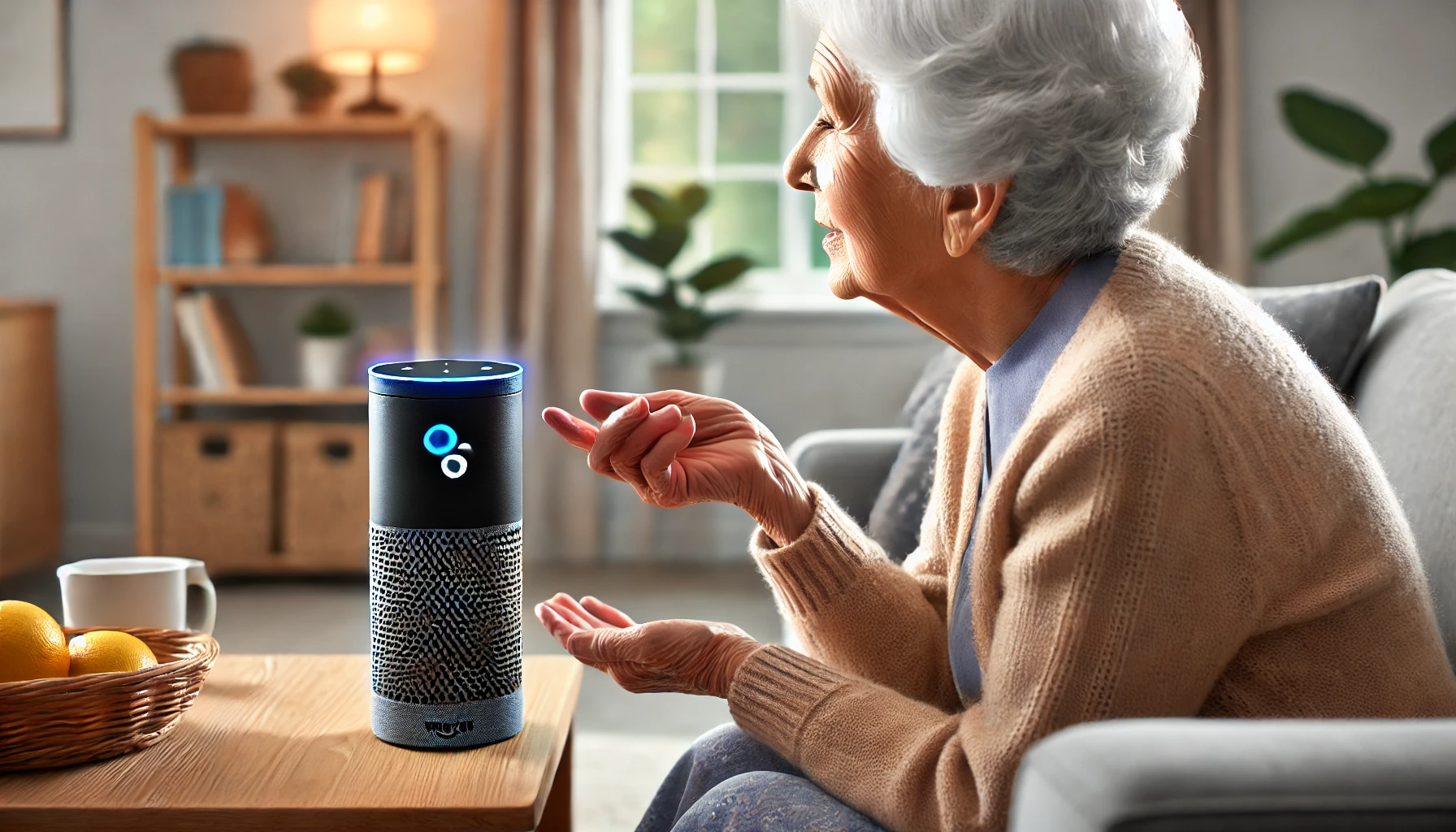Personal assistants, powered by artificial intelligence, have become an essential tool in supporting elderly people with their daily routines. These devices, like Amazon Alexa, Google Assistant, and Apple Siri, help seniors manage tasks, stay organized, and remain independent. Personal assistants can assist with a wide variety of activities, from setting reminders and controlling home devices to providing companionship and answering questions. In this article, we will explore the ways personal assistants can improve the lives of elderly individuals and the benefits they provide.
What Are Personal Assistants?
Personal assistants are AI-powered devices or software that can understand and respond to voice commands or text input. These devices are designed to perform tasks such as answering questions, setting reminders, playing music, or controlling smart home devices. For elderly individuals, personal assistants provide a hands-free way to interact with technology, making daily tasks easier and more manageable.
How Personal Assistants Work
Personal assistants work by using voice recognition and natural language processing to understand commands. Once a command is given, the assistant processes the request and performs the desired action. These devices can be connected to a variety of smart home systems and apps, making it easier for seniors to manage their home environment and daily activities.
- Voice Commands: Seniors can speak directly to their personal assistant to control various devices in their home, like adjusting the temperature, turning on lights, or locking doors.
- Text Input: Some personal assistants, such as those on smartphones or tablets, also allow for text input, enabling seniors to type out requests or ask questions when voice commands are not an option.
Benefits of Personal Assistants for Elderly People
Personal assistants provide numerous benefits that make life easier for older adults, particularly in terms of enhancing independence, improving safety, and offering companionship.
1. Increased Independence
One of the primary benefits of personal assistants is that they allow seniors to live more independently by performing tasks that they might otherwise need help with.
- Task Management: Personal assistants can set reminders for medication, appointments, and daily tasks, helping seniors stay organized and manage their time more effectively.
- Control Over the Environment: By connecting to smart home devices, seniors can control various aspects of their home environment, such as lighting, temperature, and security, with minimal effort.
2. Improved Safety and Security
Personal assistants can enhance safety and security by providing alerts, reminders, and connections to emergency services when needed.
- Emergency Alerts: Many personal assistants are connected to emergency services or can notify family members or caregivers if something goes wrong. For example, if a senior falls or is in distress, they can use their personal assistant to call for help.
- Monitoring Security: By integrating with smart security systems, personal assistants can help seniors monitor their home, set alarms, and control door locks, improving overall safety.
3. Convenience and Ease of Use
Personal assistants are designed to be user-friendly, making it easier for seniors to access information and manage their daily routines without needing advanced technical skills.
- Voice-Controlled Technology: Seniors can simply speak to their personal assistant to perform tasks, such as playing music, making phone calls, or finding out the weather forecast, making it easier for them to interact with technology.
- Hands-Free Functionality: For seniors with limited mobility or physical disabilities, personal assistants provide a hands-free way to manage everyday tasks, allowing them to perform activities without needing to physically interact with devices.
4. Companionship and Emotional Support
Personal assistants can also offer companionship and emotional support, reducing feelings of loneliness and isolation in elderly individuals.
- Conversational Interaction: Personal assistants can engage in basic conversations, answer questions, and provide a sense of social interaction. Although they are not a substitute for human companionship, they can offer comfort and connection, especially for seniors living alone.
- Entertainment and Engagement: Personal assistants can play music, tell jokes, provide trivia, or even tell stories, offering entertainment and mental stimulation. This can help reduce feelings of boredom and enhance the emotional well-being of seniors.
5. Cognitive Stimulation
Many personal assistants provide features that promote cognitive stimulation, which is especially important for older adults to maintain mental sharpness.
- Memory and Brain Games: Personal assistants can suggest and play memory games, quizzes, and other cognitive exercises that help seniors stay mentally active and sharp.
- Learning Opportunities: Personal assistants can help seniors learn new things, whether it’s by providing educational content or assisting with hobbies and interests, such as reading books or finding information online.
Challenges and Considerations
While personal assistants offer many advantages, there are also some challenges and considerations to keep in mind:
- Technology Familiarity: Some seniors may have difficulty using personal assistants, particularly if they are not familiar with technology. It’s important for caregivers or family members to assist with setup and provide ongoing support.
- Privacy Concerns: Personal assistants collect data to improve their functionality, which raises privacy concerns. It’s essential to choose personal assistants from reputable companies that prioritize user privacy and data security.
- Voice Recognition Limitations: Personal assistants rely on voice recognition, which can sometimes be inaccurate, particularly if the senior has a speech impediment or difficulty speaking clearly.
Closing Thoughts: The Role of Personal Assistants in Elderly Care
Personal assistants are transforming the way elderly individuals manage their daily routines and interact with technology. By offering increased independence, improving safety, providing companionship, and stimulating cognitive function, personal assistants are helping older adults live more fulfilling and comfortable lives. As technology continues to evolve, personal assistants will play an increasingly important role in supporting the needs of seniors and enhancing their quality of life.
